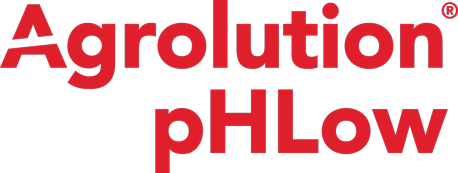Increasing the Resilience of Indoor Farming Systems
Cultivating Success: Nurturing Indoor Farming's Potential Through Precision Fertigation
On this page:
Conventional agriculture faces a multitude of challenges, from land scarcity and unpredictable weather patterns to the persistent threat of soil pests and diseases. Responding to these obstacles, Indoor Farming, also referred to as Controlled-Environment Agriculture (CEA), has emerged as a revolutionary solution with the potential to reshape the agricultural landscape. Indoor farming is a broad term encompassing farming systems in which plants are cultivated within enclosed environments. This approach includes hydroponic and vertical farming, where traditional soil is replaced with inert substrates, and a carefully calibrated fertigation solution delivers precise nutritional requirements directly to the plant roots. The use of inert substrates and fertigation enables growers to exert meticulous control over the nutrient content in the root zone. This method not only maximizes nutrient efficiency but also offers additional benefits. A key advantage of substituting inert substrates for soil is the eradication of soil-borne diseases and pests, which would otherwise necessitate chemical interventions in conventional soil-based agriculture. Furthermore, indoor farming provides the flexibility to cultivate crops throughout the year by virtue of the complete climate control that can be maintained within the enclosed environment. The provision of optimal nutrition through indoor farming enhances crop yields while simultaneously minimizing nutrient losses, contributing to the overall sustainability of the system. However, achieving this level of precision requires advanced control systems. In indoor farming, crops are heavily reliant on the fertigation system for nutrient supply, as the inert substrate lacks significant nutrient storage capacity. The sensitivity of the system renders it intolerant to deviations from optimal nutrient levels, underscoring the need for meticulous management.
Efficient Fertigation Management
Efficient fertigation management is particularly critical in hydroponic and vertical farming systems. Given their sensitivity, extensive research has been conducted to determine the most suitable nutrient solutions for various crops at different growth stages, including establishment, vegetative growth, and production. Designing an effective fertigation program hinges on understanding the properties of the irrigation water and the nutrient requirements of the specific crop. Conducting a thorough water analysis is a crucial step in this process. Water analysis provides insight into the existing nutrient composition of the irrigation water. Common nutrients found in irrigation water include calcium (Ca), magnesium (Mg), chloride (Cl), and bicarbonate (HCO3–). The pH level of the water is also a critical factor to consider, as high pH and bicarbonate levels may require acidifying fertilizers to adjust the pH and neutralize bicarbonates.
Tailored Nutrient Plans
Different crops exhibit distinct nutrient demands at various stages of growth. Tailoring fertigation plans to align with these requirements empowers growers to achieve optimal growth and improved yields. Selecting an appropriate fertigation system and closely monitoring its performance are equally important. Continual flow systems that deliver a steady stream of fertilizers are ideal for these setups. Maintaining proper nutrient concentrations in the solution near the root zone presents a significant challenge in hydroponic and vertical farming. To ensure effective nutrient delivery, growers must monitor the nutrient solution and adjust nutrient levels as needed to meet the crop’s evolving demands.
Monitoring Nutrient Solution Quality
Electrical conductivity (EC) serves as a key indicator of salt concentration in nutrient solutions. By evaluating EC values, growers can assess the nutrient status of the feed solution prior to fertigation. EC values also provide insight into the total nutrient ion content available in the fertigation solution near the root zone. Monitoring EC values enables growers to identify nutrient deficiencies or excesses and make informed adjustments based on the crop’s needs and planned fertilization program. Maintaining optimal nutrient absorption by crops necessitates maintaining the nutrient solution’s acidity within a specific range (pH 5.5 to 6.5). Systems equipped with appropriate sensors can promptly alert growers to deviations in water acidity or electrical conductivity, facilitating timely corrective measures to prevent adverse effects on crop growth and yield.
High-Quality Fertilizer Selection
The final piece of the fertigation puzzle involves selecting the right fertilizers. High-quality, water-soluble fertilizers with excellent solubility are essential to prevent blockages in the system and interference with sensitive sensors. The use of high-quality fertilizers ensures stable fertigation solutions that are free from sediment and potential disruptions. Introducing Agrolution, a range of water-soluble fertilizers developed by ICL, designed to address the specific needs of hydroponic and vertical farming systems. Agrolution fertilizers offer solutions for different water conditions, providing essential nutrients while maintaining irrigation system cleanliness. Agrolution Special is tailored for soft water conditions and chloride-sensitive crops, suitable for all stages of crop growth, particularly vegetable crops. Meanwhile, Agrolution pHLow is an optimal choice for growers dealing with high alkalinity in their irrigation water. Its acidic nature enhances nutrient dissolution efficiency, even in hard water, while preventing limescale buildup in drip lines.
The Future of Indoor Farming
By utilizing high-quality, pure water-soluble fertilizers, indoor controlled-environment agriculture systems are streamlined, allowing growers to focus on maximizing the potential benefits of these revolutionary farming methods. The combination of meticulous nutrient management, advanced control systems, and optimal fertilizer selection positions indoor farming as a transformative force in the future of agriculture.







